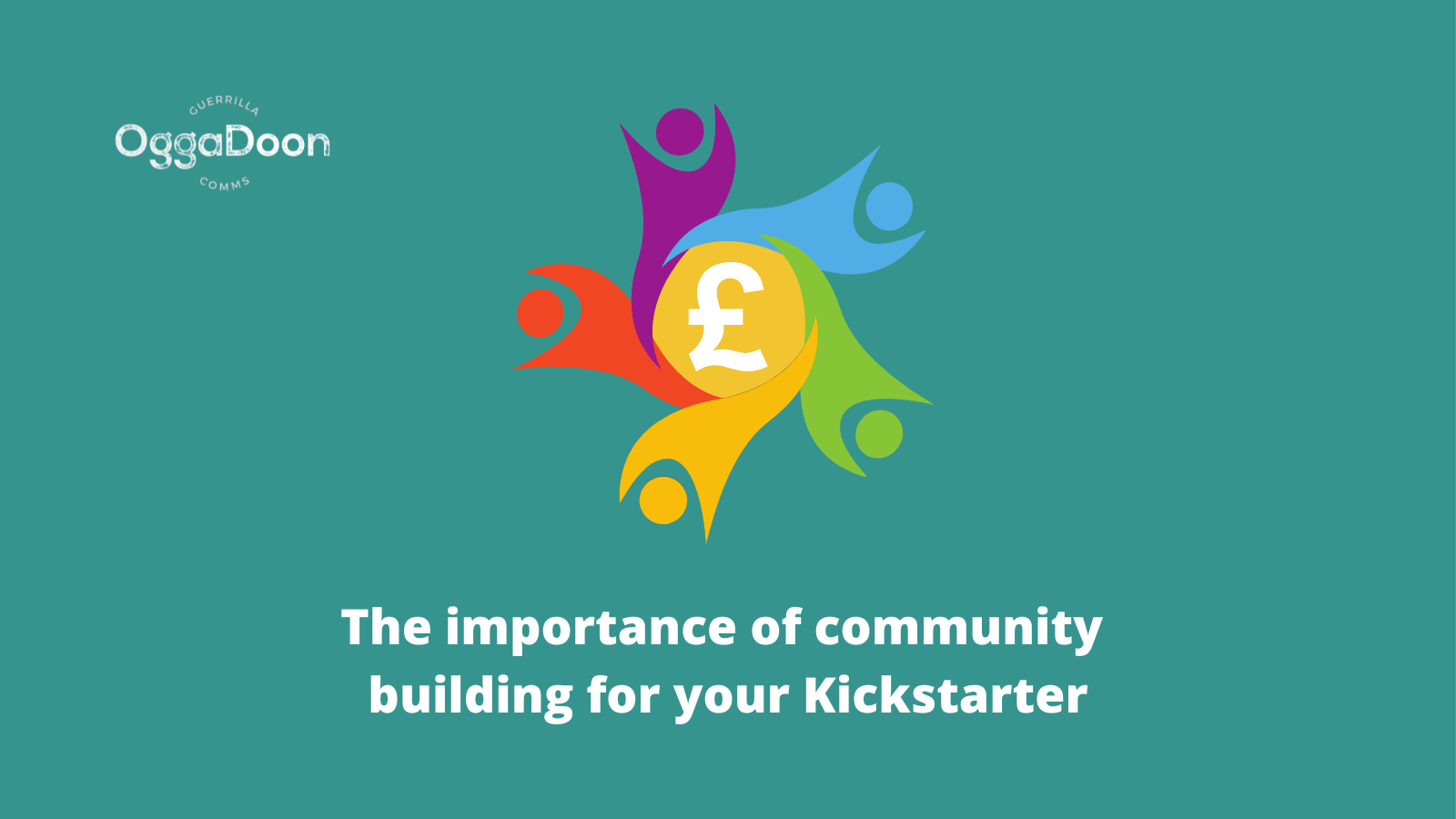
Kickstarter is a popular crowdfunding platform that allows creators to launch their projects and raise funds from a community of backers. It operates on an all-or-nothing funding model, where a project creator sets a fundraising goal and a deadline. So, if the project meets or exceeds its funding goal by the deadline, the creator receives the funds and can move forward with their project. If the goal is not met, no funds are collected, and the project does not move forward.
In the past 10 years, Kickstarter has become one of the most popular ways for small businesses and individuals to fund their projects. Which is why community building is such an essential element for successful Kickstarter campaigns. In this blog, we’ll explain how community building helps your fundraising, and how to do it effectively.
Because a Kickstarter will fail if it doesn’t meet its set target for funds, the role of backers in Kickstarter campaigns is crucial. Backers are people who contribute funds to support a project, and in return, they receive rewards based on their level of contribution. These rewards can vary depending on the project, but they often include things like early access to the product, exclusive merchandise, or recognition on the project’s website or social media channels.
Community building is a critical aspect of Kickstarter campaigns because it can help creators connect with potential backers, generate conversation, and build momentum for their project. By building a community around their project, creators can gain early feedback, validate their idea, and create a sense of anticipation for their project launch. This can increase exposure, generate social proof, and provide valuable early feedback that can help creators refine their project and improve their chances of success.
So, by leveraging community building strategies, creators can increase their exposure, generate social proof, and receive early feedback that can help them improve their projects and achieve their fundraising goals.
There are several tactics that creators can use to build a community for their Kickstarter campaign. But these are the most important tips for building a strong community that leads to a winning campaign.
One example of a successful Kickstarter campaign that utilised community building strategies is the Pebble Time smartwatch. The creators of Pebble used pre-launch marketing to build a community of early adopters, reaching out to tech bloggers and creating a landing page to generate interest in their project.
They also engaged with early backers by offering them exclusive rewards and seeking their feedback on the project. The Pebble team used social media to build excitement for their campaign, using platforms like Twitter and Facebook to share updates and reach a broader audience. In the end, the Pebble Time campaign raised over $20 million and became one of the most successful Kickstarter campaigns of all time.
Maintaining momentum and keeping backers engaged throughout a Kickstarter campaign is crucial to achieving fundraising goals and building a strong community around your project. Follow these tips for keeping backers engaged, and you’ll be well on your way to building long-term relationships.
Keep your backers in the loop by providing regular updates on your project’s progress.
Take the time to respond to comments and questions from your backers. This will build trust and demonstrate that you value their support.
Consider offering exclusive incentives to backers who support your project at higher levels. This can help incentivise larger contributions and keep backers engaged throughout the campaign.
Consider hosting virtual events like live Q&A sessions or product demos to keep your backers engaged and excited about your project.
Take the time to show appreciation for your backers by thanking them publicly and offering special recognition or rewards for their support.
View your Kickstarter campaign as an opportunity to build long-term relationships with your backers. Think about how you can stay in touch with them after the campaign ends, such as through a newsletter or social media updates.
By following these tips, creators can maintain momentum and keep their backers engaged throughout the duration of their Kickstarter campaign. Building strong relationships with backers can also help set the foundation for future success and ongoing support for their project.
Community building is an essential aspect of a successful Kickstarter campaign. By leveraging tactics like pre-launch marketing, engaging with early backers, social media, maintaining momentum, and showing appreciation, creators can build a strong community around their project and increase their chances of achieving their fundraising goals.
Building a supportive community is not only valuable for Kickstarter campaigns but also for any entrepreneurial venture, as it can provide ongoing support, feedback, and a sense of shared purpose. By prioritising community building throughout your marketing, brands and creators can set themselves up for long-term success and create meaningful connections with their supporters.
Still not sure where to start? Get in touch with OggaDoon’s team of community-building experts today.
OggaDoon specialises in guerrilla communications and marketing to gain you reach.
You need to load content from reCAPTCHA to submit the form. Please note that doing so will share data with third-party providers.
More InformationNotifications